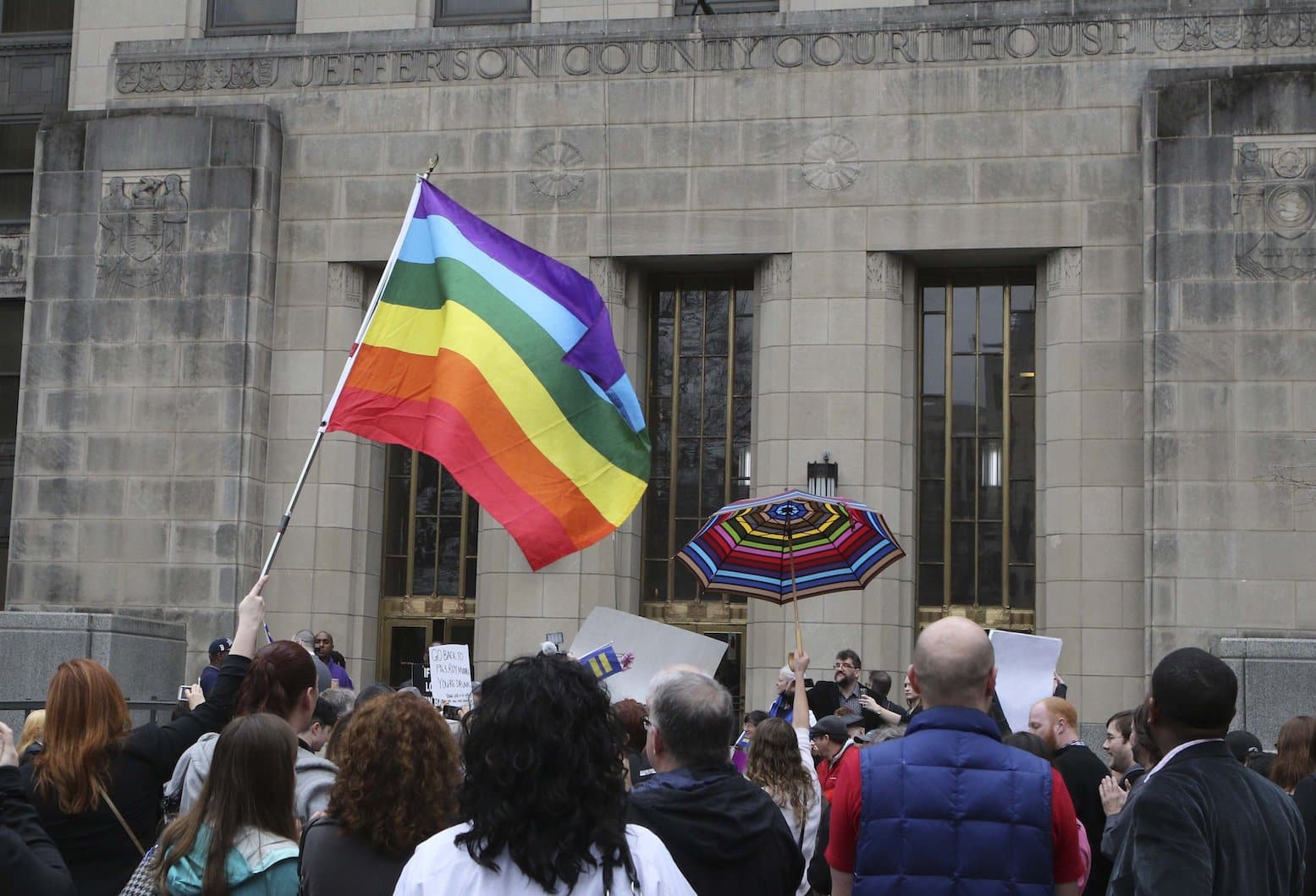(OSV News) — A federal appeals court ruled Aug. 21 that Alabama can enforce its ban outlawing some surgical and hormonal treatments for minors who identify as transgender, reversing a lower court’s preliminary injunction on the law amid an ongoing legal challenge.
Alabama’s Vulnerable Child Compassion and Protection Act makes it a felony to give minors puberty blocking medication, hormone therapy or surgery in an effort to make their sexual characteristics align with their internal perception of their gender. The law does not apply to individuals needing treatment for medically diagnosed sexual development disorders. Enforcement of that law was previously blocked by a lower court while litigation proceeds.
But a three-judge panel of the 11th U.S. Circuit Court of Appeals found that a district court judge should not have blocked enforcement of the law.
“Absent a constitutional mandate to the contrary, these types of issues are quintessentially the sort that our system of government reserves to legislative, not judicial, action,” Judge Barbara Lagoa wrote for the court.
Supporters of prohibitions on surgical or hormonal treatments for minors who identify as transgender say such efforts will protect them from irreversible changes to their bodies, as children, they may later come to regret as adults. Critics of such measures argue that preventing those interventions could cause other harm to minors, such as mental health issues or an increased risk of self-harm.
Safeguarding the well-being of minors
Alabama Attorney General Steve Marshall praised the ruling in an Aug. 22 statement, saying in part that the court “reinforced that the state has the authority to safeguard the physical and psychological wellbeing of minors.”
“Alabama takes this responsibility seriously by forbidding doctors from prescribing minors sex-modification procedures that have permanent and often irreversible effects,” Marshall said. “This is a significant victory for our country, for children, and for common sense.”
An Aug. 21 statement attributed to groups including the Southern Poverty Law Center and Human Rights Campaign, which are representing the families challenging the law, called the ruling “a deeply disappointing decision that is difficult to reconcile with the 11th Circuit’s prior rulings and with the Supreme Court’s clear guidance that discrimination because a person is transgender is sex discrimination.”
“Our clients are devastated by this decision, which leaves them vulnerable to what the district court — after hearing several days of testimony from parents, doctors, and experts — found to be irreparable harm as a result of losing the medical care they have been receiving and that has enabled them to thrive,” the statement said.
States ban gender reassignment surgery
More than 20 Republican-led states have enacted bans on gender reassignment surgery or hormonal treatments for minors, although not all of those bans are currently in effect amid legal challenges. Other courts in other states have blocked enforcement — in full or in part — of similar laws while those challenges proceed.
A similar legislative effort in Georgia was temporarily blocked from enforcement the same week. A federal judge in Georgia Aug. 20 temporarily blocked Senate Bill 140, which prohibits doctors in the state from providing some hormonal or surgical gender-transition treatments to anyone under 18, with a few exceptions, such as for those who are already in the midst of such treatments. The Georgia law does, however, permit doctors to prescribe puberty-blocking medications to minors, unlike some similar laws in other states.
Public safety
Mike Griffin, public affairs representative for the Georgia Baptist Mission Board, which worked in support of that legislation, told OSV News it is a matter of public safety for children.
“This is not about denying parents the right to make medical decisions, but ensuring that the decisions are in line with public health and safety. We already see these standards in alcohol, guns and even tattoos,” Griffin said.
Griffin said that for children struggling with gender dysphoria, “our focus needs to continue to be on education, protection, and mental health counseling” rather than surgical or hormonal treatments.
“They need to have loving, caring, mental health counseling,” he said.
USCCB issued doctrinal note
In guidance on health care policy and practices released March 20, the U.S. Conference of Catholic Bishops’ Committee on Doctrine said it opposed interventions that “involve the use of surgical or chemical techniques that aim to exchange the sex characteristics of a patient’s body for those of the opposite sex or for simulations thereof.”
“Any technological intervention that does not accord with the fundamental order of the human person as a unity of body and soul, including the sexual difference inscribed in the body, ultimately does not help but, rather, harms the human person,” the doctrinal note said.
A 2022 study by the UCLA School of Law Williams Institute found that there are approximately 1.6 million people in the U.S. ages 13 and older who identify as transgender, with an estimated 300,000 of that population who are minors.





